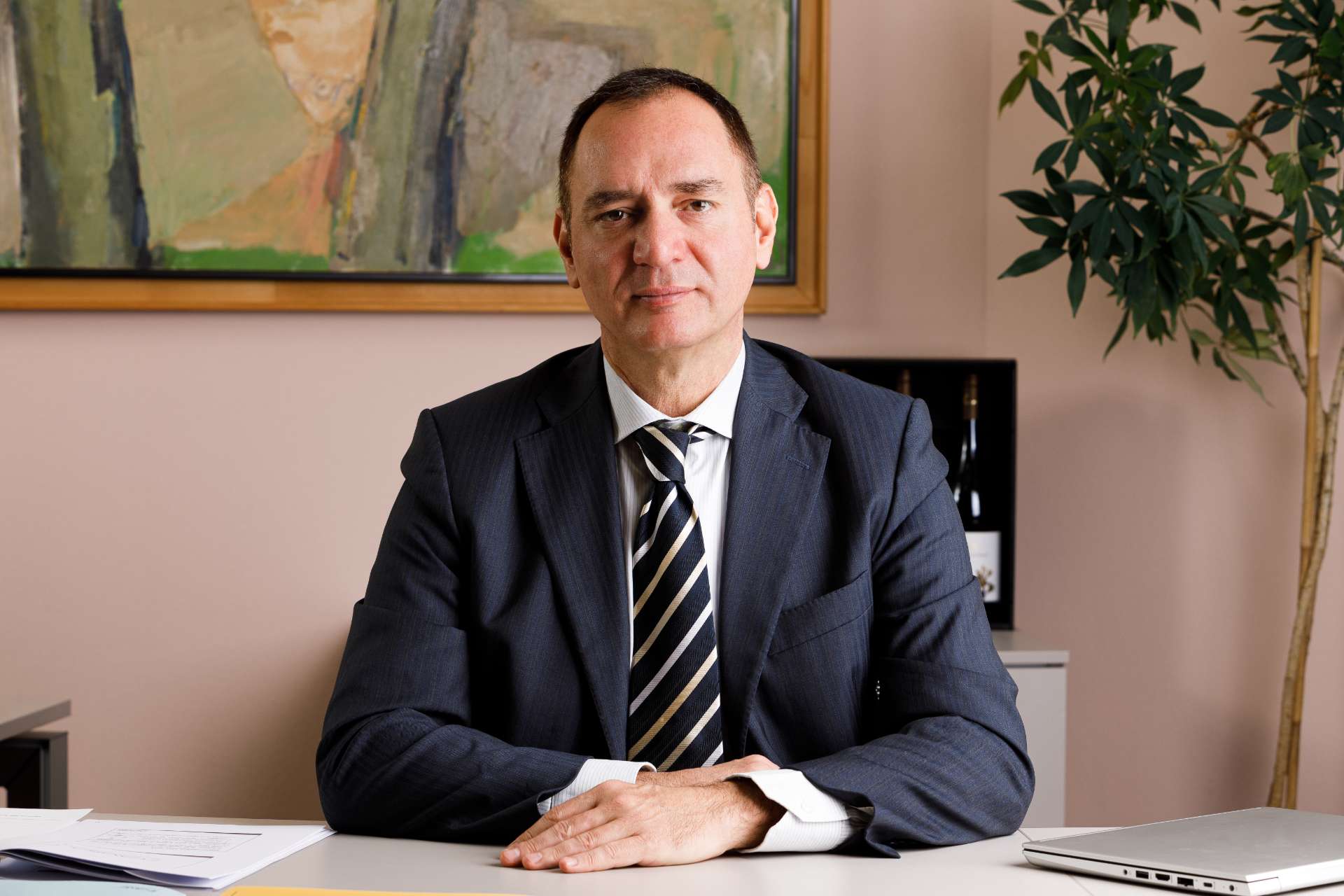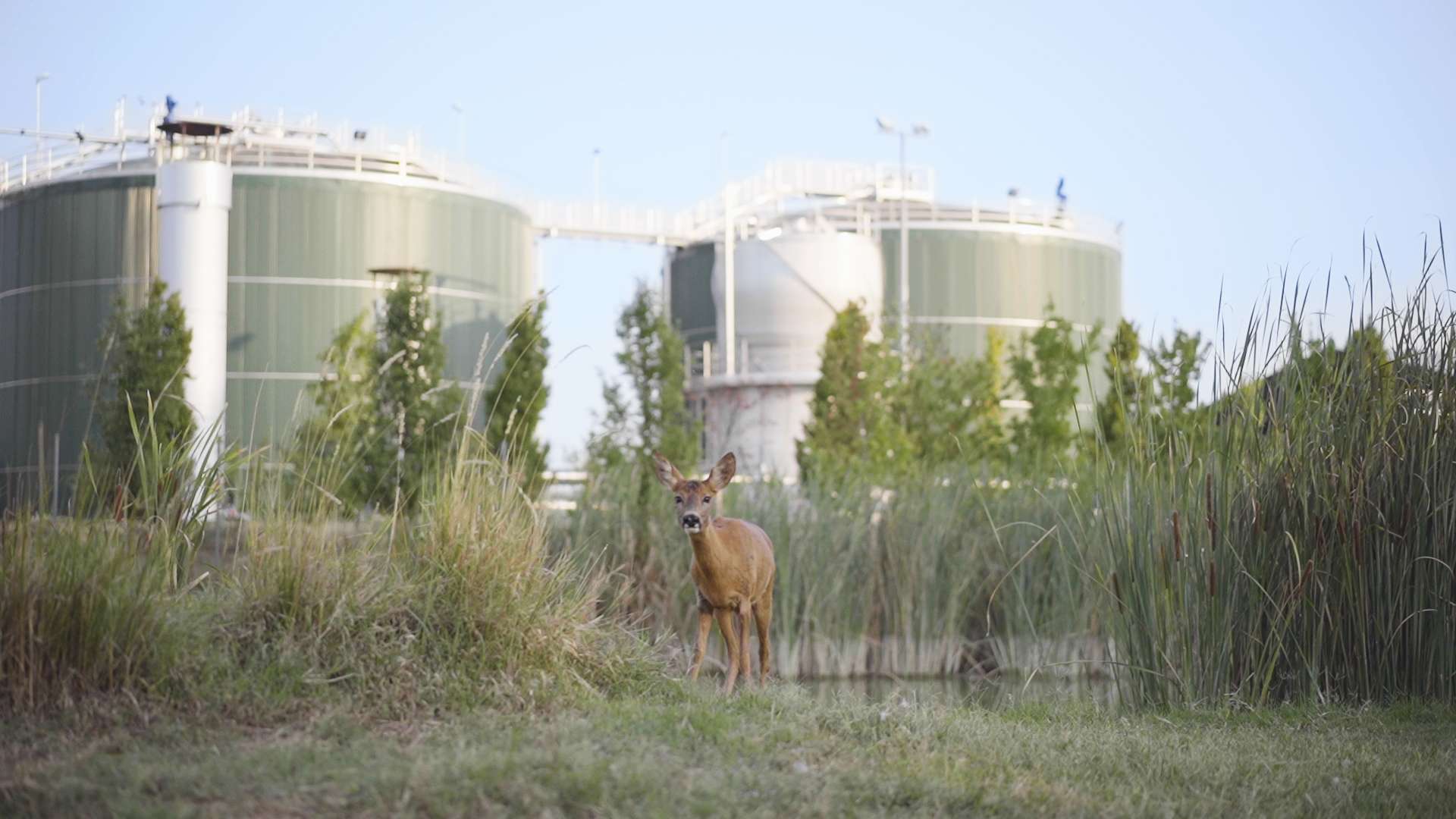Tessa Gelisio and her focus on the need for biodiversity as a source of change, innovation, resilience and evolution.

If you pay attention, the history of CAVIRO is indeed punctuated by innovations, unique choices and paths taken with a pioneering, innovative spirit. "Think of Tavernello, or the use of a circular economy before the term had even been coined", says Felice.
If today wine in brik is an integral part of our daily lives, it is because this format, and consequently, this style of consumption, was invented by CAVIRO itself in 1983. The brik was an alternative, innovative packaging, brilliantly practical - both for the final consumer and for the supermarkets that at the time were wrestling with the complicated management of bottle deposit systems. A product, Tavernello, that not everyone understood at the beginning. And between the lengthy legislative process (to see the format approved) and the scepticism of certain large distribution groups, it seemed that the project would have to be abandoned. "Any other company would have given up on the idea, but the management at the time was stubborn and insisted on pursuing their conviction that there was nothing better than a brik for preserving wine: it doesn't let light through, it is hermetically sealed, it is easy to store in the fridge, and the transport costs are reduced. It was enough for one chain of supermarkets to accept the product for it to take off. Its growth was phenomenal: 5 million items were sold in the first 12 months. Since then, no new product introduced to the market has achieved these numbers."
"The fact is that the people running CAVIRO at the time had the ability to stray from the beaten path. And choose other paths that took them a long way. Visionaries".
A cooperative of winemakers and wineries is a geography made up of people, land, relationships: its sustainable operation has a real, tangible impact on the environment, the society and the region it relates to. “When CAVIRO started its circular economy, it did so to meet a very real need expressed by its partners. These large cooperative wineries had the problem of disposing of the residues from their processes, so they asked CAVIRO, the parent company, to take care of it". CAVIRO's circular economy came about through the need to dispose of by-products, which became a chance to discover that those problematic by-products could represent a great opportunity: to extract other products, in a continuous regenerative cycle. Simply a change of perspective.
"We started by extracting alcohol, and selling it. CAVIRO took charge of a company problem regarding the disposal of waste, and transformed it into an economic benefit for its own social base. The environmental issue arrived later; after all, 60 years ago, who would have thought of saving water or fertilising the soil?"
CAVIRO, however, was firmly committed to this path. It invested resources and research in order to extract more and more from the by-products of wine making. There is a whole world to gain from that waste, and CAVIRO realised this immediately. It started to produce bio-energy, fertilisers, and little by little following or preempting the demands of a market that was starting to align with that original, agricultural vision, full of common sense: waste nothing. A virtuous circle that never ends and arrives at the present day, when CAVIRO has even managed to recover carbon dioxide, producing the opposite of the greenhouse effect.
"We use enormous digesters to treat all of the liquid waste from our partners and other agricultural industries in the area", explains Felice. "We receive waste water, dirty water, and we put it together with the organic material of pomace and skins in enormous digesters. These digesters transform everything into biogas and organic material that becomes a natural fertiliser (compost). In effect, a natural product enters, and what exits is still a natural product, but in another form. The biogas is put into compressors that separate it into bio-methane and carbon dioxide. So, we manage to capture the latter, avoiding its dispersal into the environment, and we put it back into the market, for example for companies that produce fizzy drinks, or for the hospital sector."

Sustainability must be sustainable - this is Felice's mantra. "If it isn't sustainable it won't last. It must create something that can be considered as revenue or lower costs - in any case, a benefit for the company. All the steps that CAVIRO takes bring a benefit, either economic or social, to our region. The project for CO2 capture, for example, has a cost, but this is repaid through its sale on the market and the environmental benefit we obtain from it. This is what makes us virtuous. Because there is always a return on our investments."
Among the words related to sustainability, one of the most important is surely "renewable": a word full of expectations, that looks to the future and has the germ of change within it. How can you be a renewable manager?
"If we think of the grape harvest, every year 40 million hectolitres of grapes are picked in Italy; if we are able to take care of the soil, air and water, this is a resource that regenerates itself. And every year we start from scratch. We start over again. Being a renewable manager means continually questioning everything in order to find new aspects of sustainability, because the demands out there are changing. We have an example in natural fertiliser, which, today, we are producing in large quantities, but until a few years ago was a useless product, as the majority of the land was fertilised with manure or chemical products. Today, there is a more developed environmental conscience, so there is a market for this product, and we have been able to anticipate this demand. In contrast, the example of denatured alcohol: before the pandemic, it was an obsolete product, completely out of use, and then it suddenly became essential, so we converted our production and managed to satisfy the demands of the market. It is important, therefore, for management to constantly be listening, paying attention to how situations evolve. On one hand, being able to sense and anticipate trends, and on the other, being reactive to specific demands of the market.
A company that makes sustainability its dogma must continue to challenge itself, and practically start from scratch every time."
The concept of sustainability combines two aspects: the ability to withstand impact, that is, resilience; and the ability to think about tomorrow, and see far ahead. At CAVIRO, we are always trying to consider the needs of tomorrow, starting from what exists within the company; the world of viticulture offers many opportunities (from CO2 to natural colourings, from polyphenols to resveratrol), and it is possible to take advantage of these thanks to planning and financial capacity. "To use a metaphor, it is important to have a port you want to arrive at, but at the same time to be ready and able to resist, every year, any storm that may come your way."
A vision of the years to come: "I believe that when the pandemic finishes, there will be a very strong return to the ideas of environmental sustainability, which have been temporarily put aside, but have influenced many of us, especially young people. These ideas will return with greater force than before. In terms of the situation for our company, for example, environmental sustainability could become even more urgent and strategic, also in terms of economic or social factors. Then there is another aspect, the economic and financial: what has happened will lead to more understanding of the value of solid, ethical, strong and resilient companies. Consumers tend to choose companies that provide continuity, with which they can establish long-lasting, supportive relationships. In exchange, companies will have to invest in customisation, regionalisation and knowledge of the territory."
Tessa Gelisio and her focus on the need for biodiversity as a source of change, innovation, resilience and evolution.
Climate change: according to philosopher-influencer Rick DuFer, creating individual awareness is the key to pushing everyone towards action.
